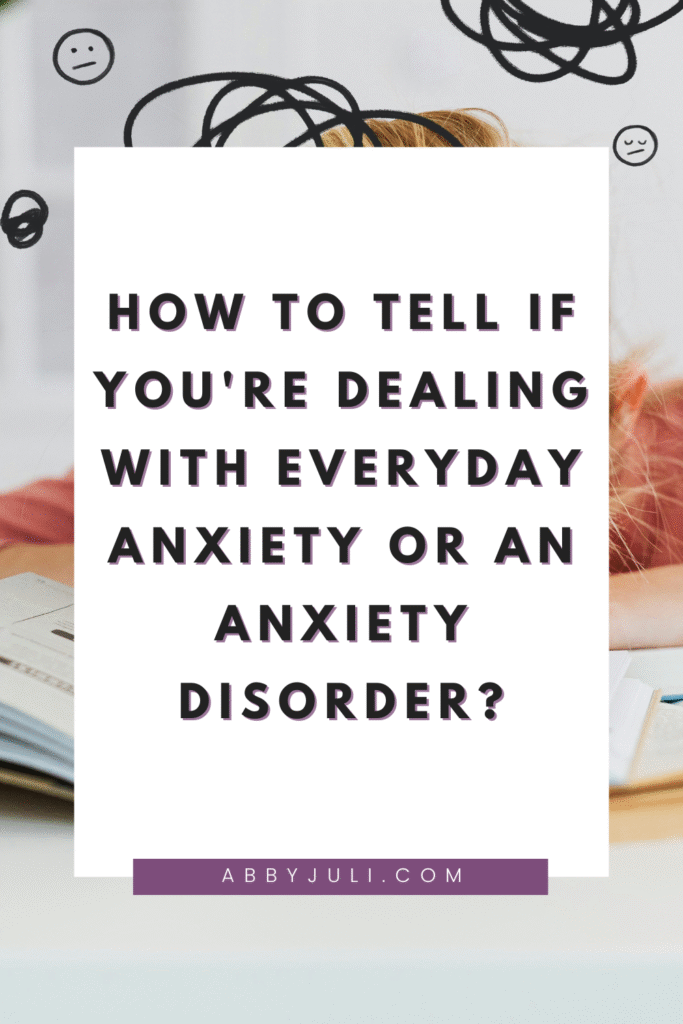
It all started when I was a teen. I remember saying I heard my aunt’s voice, especially when I was stressed. It was like her words lived in my head rent-free. I didn’t think too much of it at the time—I just told myself I was overthinking or being too emotional. I thought I could take her power away by ignoring it.
Years later, my mental health hit a breaking point.
It sounds childish to some, but it started with the death of my furry four-legged girl. She wasn’t just a pet—she was my safe space, my comfort, and my best friend. Losing her shattered something in me. I still miss her every day.
After she passed, I had a massive panic attack that landed me in the hospital for weeks. It was the longest, loneliest stretch of my life—away from home for the first time, overwhelmed and terrified.
Things got better for a while.
Then COVID hit.
Suddenly I was getting night sweats and panic attacks in the middle of the night. I’d wake up drenched and panicked, then somehow drift back to sleep like it never happened. I stopped feeling safe in my own room after I began hearing voices—classmates I hadn’t seen in years—whispering in my mind. It felt real.
Then came the out-of-body moment I can’t forget. I imagined one of those classmates had crashed into my parked car and died. I could hear his family grieving—voices I hadn’t heard in years, some who bullied me when I was younger. Except for his sister. Her voice comforted me.
I stopped sleeping in my room. I stuck to the couch or with my parents.
****** Somethings im choosing not to share…. But this is a start
Even on meds, the voices didn’t go away. They come back strongest when I’m stressed—especially about the small things no one else even notices.
As a teen, I always knew I had anxiety. But I wasn’t properly diagnosed until after COVID—when things went from “normal stress” to something that completely took over my life.
Do You Have Everyday Anxiety or an Anxiety Disorder?
Anxiety is something most people feel sometimes. But anxiety disorders are deeper, stronger, and harder to manage alone. Here’s how to tell the difference:
Everyday Anxiety
✨ Worrying about things like work, school, relationships
✨ Feeling nervous before big events
✨ Occasional trouble sleeping or concentrating
✨ Physical tension or unease that goes away after the stressor passes
Anxiety Disorder
🌀 Worrying constantly—about everything, even “small” things
🌀 Panic attacks, night sweats, or fear that comes out of nowhere
🌀 Avoiding people, places, or situations to stop the anxiety
🌀 Trouble functioning—at work, school, or even doing daily tasks
🌀 Physical symptoms like chest tightness, dizziness, GI issues
🌀 Feeling like something terrible is always about to happen
🌀 Hearing voices or experiencing things that feel very real but others don’t notice
When to Get Help
Please know—there’s no shame in needing support.
If you feel like any of the following apply to you, it’s time to reach out:
💬 Your anxiety affects your sleep, eating, or daily routine
💬 You isolate yourself or avoid things that once felt easy
💬 You feel afraid of your thoughts, or think you’re losing control
💬 You’re experiencing panic attacks or hallucinations
💬 Your coping strategies (like journaling, music, or rest) just aren’t working anymore
💬 You feel hopeless, unsafe, or exhausted more days than not
Asking for help doesn’t make you weak. It means you’re brave enough to face what’s hurting.
Final Thoughts 💬
I’m not sharing this for sympathy. I’m sharing it for awareness.
Because this is what mental illness can really look like—and too many people suffer in silence.
It’s 2024, and these invisible illnesses still don’t get talked about enough.
Not until it’s too late.
I’m Abby, and I started writing these mini-blogs to share my journey and end the stigma around mental health, anxiety, and invisible illness.
You’re not alone in this.
Let’s keep talking. Let’s keep showing up for each other. 💕
✨ Mental Health Disclaimer
I’m not a medical professional. The content in this post is based on personal experience and is not a substitute for professional advice, diagnosis, or treatment. If you’re struggling, please speak to a licensed mental health provider. You deserve support.
